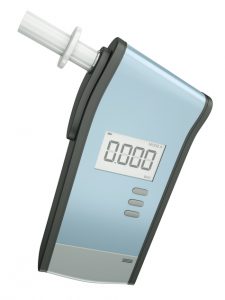It is undeniable that facing a DUI charge is an embarrassing and potentially life-altering ordeal. However, when armed with the right information and legal counsel, you can use the circumstances of your arrest to protect your innocence and restore your clean driving record. There are times when you should consider challenging breathalyzer test results in Massachusetts.
Why Breathalyzers Are Unreliable
Despite the fact that blood tests are more reliable measures of blood alcohol concentration, or BAC, the breath test, or “breathalyzer” is still the preferred choice of many police districts. In Massachusetts, the breathalyzer test is most commonly used during roadside investigations and at police stations. Anyone over 21 who blows over the legal limit of .08% is automatically charged with a DUI. The breathalyzer test administered at the police station is different from the portable device commonly used at roadside stops and is thought to be more reliable. However, the results can still be challenged.
Unlike blood or urine tests, breathalyzer tests measure blood alcohol levels indirectly, using a chemical reaction to convert the amount of alcohol in a person’s breath to make a conclusion about the percentage of alcohol in their bloodstream. These reasons, along with other factors, make a drunk-driving charge easy to argue when a breathalyzer was used to prove driver impairment. While the devices are more portable and commonly used, no breathalyzer is known to have a 100% accuracy rate.
How to Make Your Defense
A number of factors could cause a false reading, all of which you can use to your advantage in court. One factor is the maintenance and calibration of the machine. If the device was not properly maintained, was improperly calibrated, or has a history of technical problems, results could be skewed. Additionally, only a certified operator can administer a breath test. They must observe you for fifteen minutes prior to administering the test and remove all residual substances from the machine to ensure a proper reading. Also, the breathalyzer display must show .000 before the test. If any flaws are found in either the equipment or the individual operating the device, your case can be dismissed.
Other factors, such as chemicals or gases present in the air during testing or a driver’s exposure to alcohol-based products, like breath sprays or cold medicine, could discredit the results. Also, if the driver vomited or burped before the test was taken, the readings could be skewed. Or, if the lung capacity or physical makeup of the defendant is limited in any way, the results could be deemed invalid. Studies show that breath-to-blood ratios vary on an individual basis, which is just another reason why the breathalyzer is not a reliable measure of blood alcohol content.
What You Should Do Next
All breathalyzer devices have their problems, and the factors of any case can be used to your defense. If you have failed a breath test or have been arrested for a DUI, consider hiring a DUI defense attorney to review your case. A skilled lawyer can use the circumstances of your arrest to prove that test results are unreliable. Gaining experienced legal counsel is a crucial step in avoiding the fines, jail time, and driver’s license restrictions that result from a DUI charge.
If you or a loved one has been arrested for drunk driving in the Boston area, contact me for a free phone consultation. I provide criminal defense legal representation to residents of Lawrence, Lowell, Haverhill, Concord, Ayer and Newburyport, Massachusetts. to speak with me directly.
 Massachusetts Criminal Defense Attorney Blog
Massachusetts Criminal Defense Attorney Blog


